Kim-Mozeleski, J. E., Shaw, S. J., Yen, I. H., & Tsoh, J. Y. (2022). A qualitative investigation of the experiences of tobacco use among U.S. adults with food insecurity. International Journal of Environmental Research and Public Health, 19(12).
Abstract
Background: Low-income U.S. adults experiencing food insecurity have a disproportionately high prevalence of cigarette smoking, and quantitative studies suggest that food insecurity is a barrier to quitting. To guide effective tobacco control strategies, this study aimed to understand the experiences, perceptions, and context of tobacco use and cessation among low-income populations experiencing food insecurity. Methods: We conducted in-depth, semi-structured interviews with 23 adults who were currently smoking cigarettes and were experiencing food insecurity, mostly living in rural settings. Participants were recruited through food-pantry-based needs assessment surveys and study flyers in community-based organizations. The interview guide explored participants’ histories of smoking, the role and function of tobacco in their lives, their interest in and barriers to quitting, as well as lived experiences of food insecurity. We used reflexive thematic analysis to analyze transcribed interviews. Results: Within a broader context of structural challenges related to poverty and financial strain that shaped current smoking behavior and experiences with food insecurity, we identified the following five themes: smoking to ignore hunger or eat less; staying addicted to smoking in the midst of instability; smoking being prioritized in the midst of financial strain; life stressors and the difficulty of quitting smoking and staying quit; and childhood adversity at the intersection of food insecurity and tobacco use. Conclusion: The context of tobacco use among adults with food insecurity was highly complex. To effectively address tobacco-related disparities among those who are socially and economically disadvantaged, tobacco control efforts should consider relevant lived experiences and structural constraints intersecting smoking and food insecurity. Findings are applied to a conceptualization of clustering of conditions contributing to nicotine dependence, food insecurity, and stress. Keywords: tobacco use, food insecurity, poverty, disparities, qualitative
Last updated on 07/16/2022

